
Sir Timothy John Berners-Lee, also known as TimBL, is an English computer scientist best known as the inventor of the World Wide Web, the HTML markup language, the URL system, and HTTP. He is a professorial research fellow at the University of Oxford and a professor emeritus at the Massachusetts Institute of Technology (MIT).

The World Wide Web Consortium (W3C) is the main international standards organization for the World Wide Web. Founded in 1994 and led by Tim Berners-Lee, the consortium is made up of member organizations that maintain full-time staff working together in the development of standards for the World Wide Web. As of 5 March 2023, W3C had 462 members. W3C also engages in education and outreach, develops software and serves as an open forum for discussion about the Web.
Web colors are colors used in displaying web pages on the World Wide Web; they can be described by way of three methods: a color may be specified as an RGB triplet, in hexadecimal format or according to its common English name in some cases. A color tool or other graphics software is often used to generate color values. In some uses, hexadecimal color codes are specified with notation using a leading number sign (#). A color is specified according to the intensity of its red, green and blue components, each represented by eight bits. Thus, there are 24 bits used to specify a web color within the sRGB gamut, and 16,777,216 colors that may be so specified.
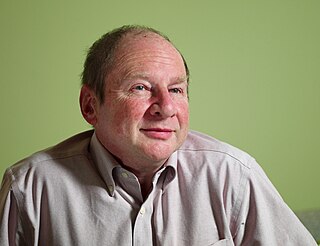
Harold Abelson is a Professor of Computer Science and Engineering in the Department of Electrical Engineering and Computer Science at the Massachusetts Institute of Technology (MIT), a founding director of both Creative Commons and the Free Software Foundation, creator of the MIT App Inventor platform, and co-author of the widely-used textbook Structure and Interpretation of Computer Programs, sometimes also referred to as "the wizard book."

Computer Science and Artificial Intelligence Laboratory (CSAIL) is a research institute at the Massachusetts Institute of Technology (MIT) formed by the 2003 merger of the Laboratory for Computer Science (LCS) and the Artificial Intelligence Laboratory. Housed within the Ray and Maria Stata Center, CSAIL is the largest on-campus laboratory as measured by research scope and membership. It is part of the Schwarzman College of Computing but is also overseen by the MIT Vice President of Research.
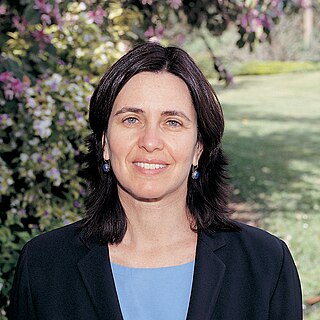
Shafrira Goldwasser is an Israeli-American computer scientist and winner of the Turing Award in 2012. She is the RSA Professor of Electrical Engineering and Computer Science at Massachusetts Institute of Technology; a professor of mathematical sciences at the Weizmann Institute of Science, Israel; the director of the Simons Institute for the Theory of Computing at the University of California, Berkeley; and co-founder and chief scientist of Duality Technologies.

Chris Lilley is a British computer scientist known for co-authoring the Portable Network Graphics (PNG) format, starting the Scalable Vector Graphics (SVG) format, and his work on HTML2, CSS2, and Web fonts.

Alan Kotok was an American computer scientist known for his work at Digital Equipment Corporation and at the World Wide Web Consortium (W3C). Steven Levy, in his book Hackers: Heroes of the Computer Revolution, describes Kotok and his classmates at the Massachusetts Institute of Technology (MIT) as the first true hackers.

Fernanda Bertini Viégas is a Brazilian computer scientist and graphical designer, whose work focuses on the social, collaborative and artistic aspects of information visualization.
Ronald Baecker is an Emeritus Professor of Computer Science and Bell Chair in Human-Computer Interaction at the University of Toronto (UofT), and Adjunct Professor of Computer Science at Columbia University. He was the co-founder of the Dynamic Graphics Project (DGP), and the founder of the Knowledge Media Design Institute (KMDI) and the Technologies for Aging Gracefully Lab (TAGlab) at UofT. He was the founder of Canada's research network on collaboration technologies (NECTAR), a founding researcher of AGE-WELL, Canada's Technology and Agine research network, the founder of Springer Nature's Synthesis Lectures on Technology and Health, and the founder of computers-society.org. He also started five software companies between 1976 and 2015. He is currently an ACM Distinguished Speaker.
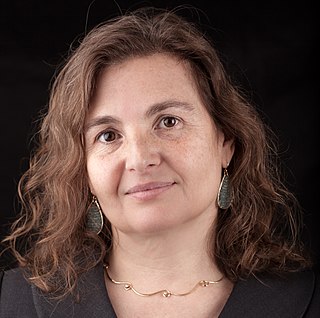
Daniela L. Rus is a roboticist and computer scientist, Director of the MIT Computer Science and Artificial Intelligence Laboratory (CSAIL), and the Andrew and Erna Viterbi Professor in the Department of Electrical Engineering and Computer Science (EECS) at the Massachusetts Institute of Technology.
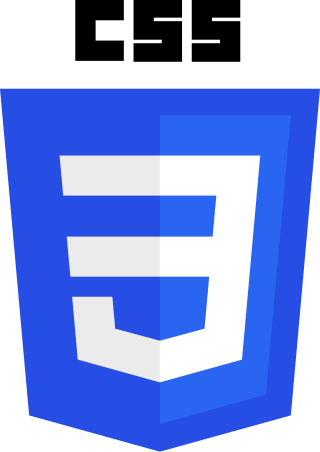
Cascading Style Sheets (CSS) is a style sheet language used for specifying the presentation and styling of a document written in a markup language such as HTML or XML. CSS is a cornerstone technology of the World Wide Web, alongside HTML and JavaScript.

Constantinos Daskalakis is a Greek theoretical computer scientist. He is a professor at MIT's Electrical Engineering and Computer Science department and a member of the MIT Computer Science and Artificial Intelligence Laboratory. He was awarded the Rolf Nevanlinna Prize and the Grace Murray Hopper Award in 2018.
The CSS Working Group is a working group created by the World Wide Web Consortium (W3C) in 1997, to tackle issues that had not been addressed with CSS level 1. As of December 2022, the CSSWG had 147 members.

Stephanie Seneff is a senior research scientist at the Computer Science and Artificial Intelligence Laboratory (CSAIL) of the Massachusetts Institute of Technology (MIT). Working primarily in the Spoken Language Systems group, her research at CSAIL relates to human–computer interaction, and algorithms for language understanding and speech recognition. In 2011, she began publishing controversial papers in low-impact, open access journals on biology and medical topics; the articles have received "heated objections from experts in almost every field she's delved into," according to the food columnist Ari LeVaux.

Rachel Andrew is a British web developer, author and speaker. She is an Invited Expert to the World Wide Web Consortium (W3C) CSS Working Group, Google Developer Expert, and a former member of the Web Standards Project. She is the editor-in-chief of Smashing Magazine.

Manolis Kellis is a professor of Computer Science at the Massachusetts Institute of Technology (MIT) in the area of Computational Biology and a member of the Broad Institute of MIT and Harvard. He is the head of the Computational Biology Group at MIT and is a Principal Investigator in the Computer Science and Artificial Intelligence Lab (CSAIL) at MIT.

Jen Simmons is an American graphic designer, web developer, educator and speaker known for her expertise in web standards, particularly HTML and CSS. She is a member of the CSS Working Group and has been prominent in the deployment of CSS grid layout. She worked as a developer advocate at Mozilla and later at Apple.

David Baron is an American computer scientist, web browser engineer, open web standards author, technology speaker, and open source contributor. He has written and edits several CSS web standards specifications including CSS Color Module Level 3, CSS Conditional Rules, and several working drafts. He started working on Mozilla in 1998, and was employed by Mozilla in 2003 to help develop and evolve the Gecko rendering engine, eventually as a Distinguished Engineer in 2013. He was Mozilla’s representative on the WHATWG Steering Group from 2017-2020. He has served on the W3C Technical Architecture Group (TAG) continuously since being elected in 2015 and re-elected subsequently, most recently in 2020. In 2021 he joined Google to work on Google Chrome.
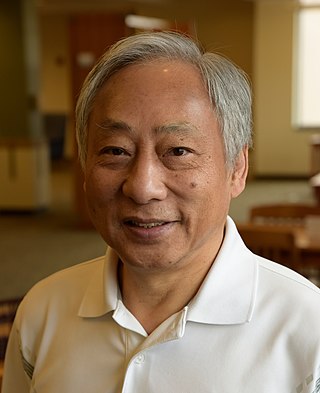
Paul S. Wang is a Chinese-American computer scientist, researcher, author, consultant, and academic. He is Professor Emeritus of Computer Science at Kent State University.
















